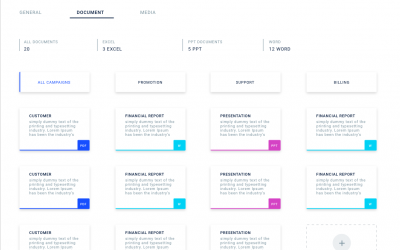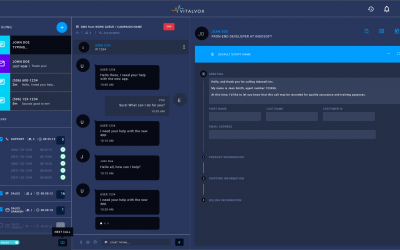Effective Call Center Techniques

Handling difficult customers in a call center is an art that can turn potentially negative experiences into positive ones. Mastering effective call center techniques is essential for agents who often encounter challenging and irate customers. In this article, we’ll explore proven strategies and techniques for dealing with difficult customers, supported by real-life examples and success stories.
Effective Call Center Techniques
I. Maintain Calm and Empathy
Stay Calm: It’s crucial to remain composed when facing an irate customer. For instance, taking deep breaths and using a calm tone can help de-escalate the situation. Moreover, staying calm allows you to think more clearly and respond effectively.
Empathize: Show empathy by acknowledging the customer’s frustration. For example, statements like, “I understand why you’re upset,” can significantly calm them down. Empathy shows the customer that you value their concerns.
Real-Life Example: A customer felt furious about a late delivery. The agent empathized with their frustration, apologized for the delay, and offered a solution, which significantly improved the customer’s mood.
II. Active Listening
Listen Attentively: Allow the customer to express their concerns without interruption. Consequently, active listening demonstrates that you value their perspective and commit to resolving their issue.
Paraphrase and Clarify: Repeat what the customer has said to ensure you’ve understood their issue correctly. Additionally, ask clarifying questions if needed to prevent misunderstandings and show that you are engaged in the conversation.
Success Story: An agent encountered a customer who felt upset about a billing discrepancy. By actively listening and paraphrasing the problem, the agent uncovered the root cause and resolved it to the customer’s satisfaction.
III. Problem-Solving and Ownership
Ownership: Take ownership of the issue, even if you didn’t directly cause the problem. Customers appreciate when agents take responsibility for finding a solution, as it shows commitment and reliability.
Offer Solutions: Present viable solutions to address the customer’s concerns. Be prepared to offer alternatives or escalate the issue if necessary, ensuring the customer feels their problem receives serious attention.
Real-Life Example: A customer faced technical issues with a product. The agent took ownership of the problem, provided troubleshooting steps, and arranged for a technician to visit the customer’s location. This resolved the issue promptly.
IV. Maintain Professionalism
Stay Professional: Maintain a professional tone and avoid responding emotionally to the customer’s frustration. Consequently, professionalism builds trust and respect, which are crucial for effective customer service.
Be Patient: Difficult customers may require extra patience. Sometimes, they simply need to vent their frustrations. Therefore, allow them the space to do so without interrupting, and respond calmly.
Success Story: An agent encountered a customer who had been transferred multiple times without resolution. The agent patiently listened, took ownership of the issue, and resolved it in a single call. This left the customer impressed with the professionalism displayed.
V. Know When to Escalate
Escalation Protocol: Establish clear escalation protocols for issues that agents cannot resolve. Therefore, ensure agents know when and how to escalate problems to maintain efficiency and customer satisfaction.
Supervisor Support: In challenging cases, involve supervisors or higher-level support promptly. This can ensure a swift resolution and demonstrate a commitment to solving the customer’s problem.
Real-Life Example: An agent faced a complex technical issue beyond their expertise. They escalated the problem to a technical specialist, who provided a solution that delighted the customer.
Conclusion
Handling difficult customers in call centers is an art that agents can master with the right strategies and techniques. Mastering effective call center techniques, such as maintaining calm, showing empathy, active listening, problem-solving, professionalism, and knowing when to escalate, is essential for agents. Moreover, real-life examples and success stories illustrate how these techniques can turn challenging customer interactions into positive experiences, ultimately enhancing customer satisfaction and loyalty. By equipping agents with these skills, call centers can navigate difficult situations with confidence and effectiveness.
Contact Us
If you have any questions or need further assistance, please don’t hesitate to contact us. Our team is here to help you improve your call center operations and enhance customer satisfaction.
Categories
- Agent Performance & Training
- AI solutions
- Asterisk
- Business Growth
- Call Center Performance & Productivity
- Call Center Software Platform
- Call Center Technology & AI Integration
- Call Center Training
- Call Center Workforce Management
- Call Monitoring
- Cloud-Based Solutions
- Customer Experience
- Data Security
- General
- Insights
- Integrated Customer Service
- News
- Omnichannel Communication Strategy
- Omnichannel Support
- Quality Assurance
- Tech


